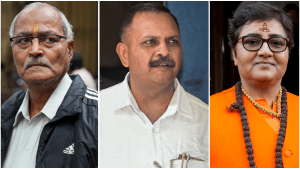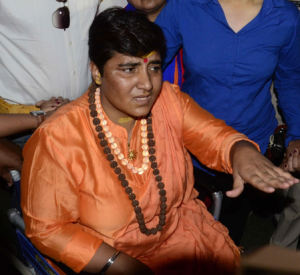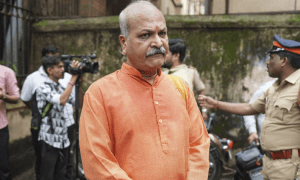The special National Investigation Agency (NIA) court in Mumbai delivered a landmark verdict on Thursday, resulting in complete Malegaon blast acquittals for all seven accused individuals in the 2008 bombing case. This historic decision has effectively dismantled the controversial “saffron terror” narrative that had dominated political discourse for over a decade, with Maharashtra’s leadership celebrating the vindication of justice.
Special Judge A K Lahoti emphasised that “mere suspicion cannot take the place of real proof,” adding that “in the absence of any evidence, the accused persons deserve the benefit of doubt.” The comprehensive Malegaon blast acquittals encompassed all defendants, including former BJP MP Sadhvi Pragya Singh Thakur and Lieutenant Colonel Prasad Purohit, marking the conclusion of one of India’s most politically charged terrorism cases.
 Maharashtra Chief Minister Devendra Fadnavis and Deputy Chief Minister Eknath Shinde expressed profound satisfaction with the Malegaon blast acquittals, viewing them as definitive proof that terrorism cannot be associated with any religious identity. Fadnavis categorically stated, “Terrorism was never saffron, is not, and will never be,” while demanding an apology from the Congress party to the entire Hindu community.
Maharashtra Chief Minister Devendra Fadnavis and Deputy Chief Minister Eknath Shinde expressed profound satisfaction with the Malegaon blast acquittals, viewing them as definitive proof that terrorism cannot be associated with any religious identity. Fadnavis categorically stated, “Terrorism was never saffron, is not, and will never be,” while demanding an apology from the Congress party to the entire Hindu community.
Read More: Malegaon Blast Acquittals
Deputy CM Shinde characterised the verdict as “justice delayed but delivered,” emphasising that after seventeen years of legal proceedings, truth had ultimately prevailed. The Malegaon blast acquittals have been hailed by the ruling coalition as vindication of their consistent position that terrorism transcends religious boundaries and should never be communalised for political gain.
The Malegaon blast acquittals represent more than judicial relief for the accused; they constitute a comprehensive rejection of the “saffron terror” concept that emerged during the previous Congress-led administration. Political leaders have specifically criticised the Congress party for coining the term “Hindu terrorism,” arguing that such characterisations were politically motivated and lacked a substantial evidentiary foundation.
The systematic nature of these Malegaon blast acquittals demonstrates the weakness of the prosecution’s case, which relied heavily on circumstantial evidence and failed to establish concrete connections between the accused and the terrorist act. The court examined 323 prosecution witnesses and 8 defence witnesses before reaching its comprehensive acquittal decision, indicating thorough judicial scrutiny of all available evidence.


The 2008 explosion killed six people and injured 101 others near a mosque in Malegaon, making it a serious terrorist incident that demanded thorough investigation and prosecution. However, the Malegaon blast acquittals highlight the importance of maintaining evidentiary standards even in high-profile terrorism cases, ensuring that justice prevails over political expedience.
The aftermath of the Malegaon blast acquittals has intensified calls for political accountability from opposition parties, particularly the Congress, which had prominently promoted the “saffron terror” narrative during its tenure. Political leaders have demanded apologies for promoting this controversial characterisation, arguing that such narratives unfairly stigmatise entire communities based on insufficient evidence.
The Malegaon blast acquittals have also sparked broader discussions about investigative practices and the need for maintaining professional standards in terrorism cases. Critics argue that the previous administration’s approach to the case was influenced more by political considerations than by objective evidence evaluation, leading to prolonged legal proceedings that ultimately resulted in complete acquittals.
The comprehensive nature of these Malegaon blast acquittals establishes important legal precedents for future terrorism cases, emphasising the critical importance of substantial evidence over circumstantial connections. The court’s decision reinforces fundamental principles of criminal justice, including the presumption of innocence and the requirement for proof beyond a reasonable doubt.


The historic Malegaon blast acquittals represent a decisive moment in India’s legal and political landscape, effectively ending the controversial “saffron terror” narrative while reaffirming fundamental principles of justice and evidence-based prosecution. After seventeen years of legal proceedings, the complete vindication of all accused individuals demonstrates the importance of maintaining rigorous evidentiary standards in terrorism cases.
The Malegaon blast acquittals serve as a powerful reminder that terrorism cannot and should not be communalised for political advantage, and that justice systems must remain committed to truth and evidence rather than political expedience. As Maharashtra’s leadership has emphasised, terrorism has no religious identity, and these acquittals conclusively establish that principle in the legal record.
This landmark verdict will likely influence future counter-terrorism investigations and prosecutions, establishing clear expectations for evidence-based proceedings while rejecting communally charged narratives that lack a substantial foundation. The Malegaon blast acquittals thus represent not merely individual vindication, but a broader victory for secular justice and evidence-based legal proceedings in India’s democracy.

